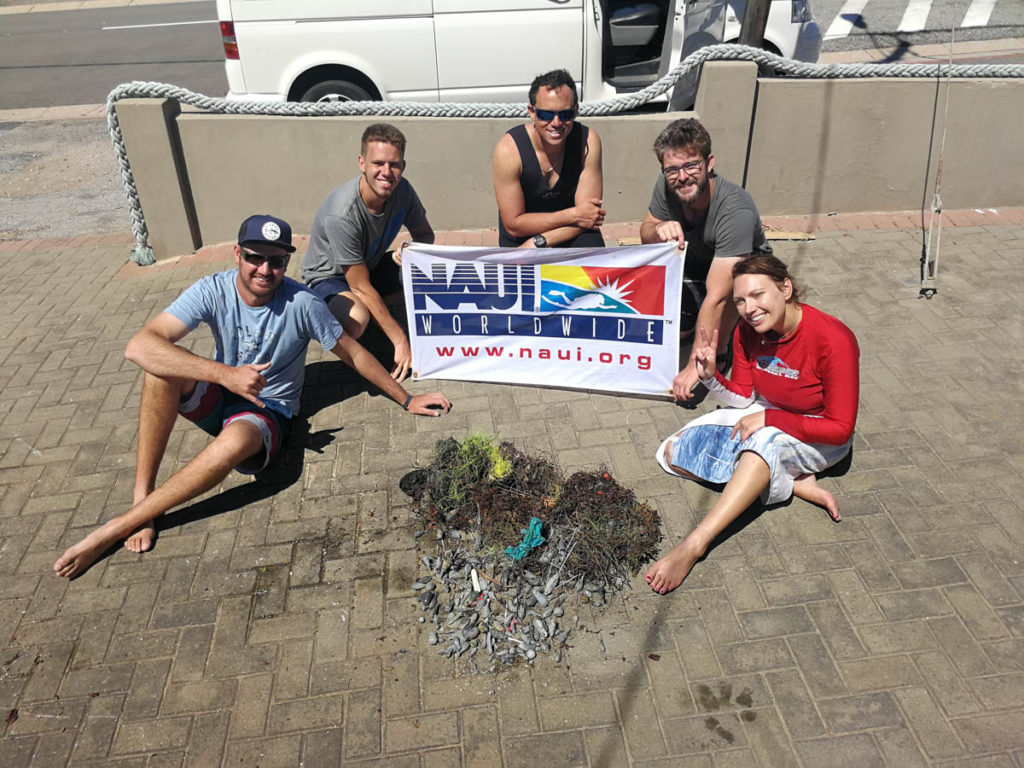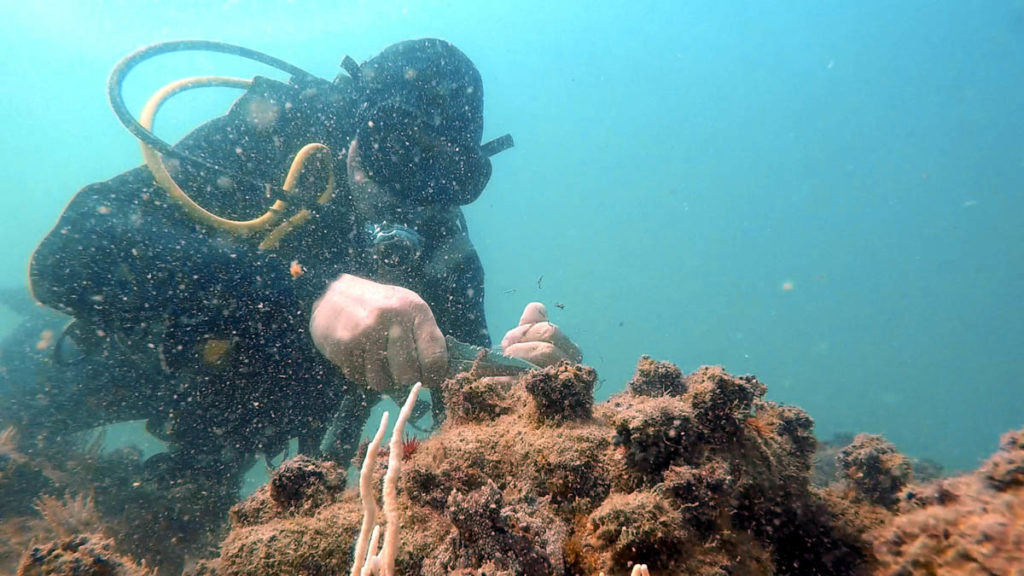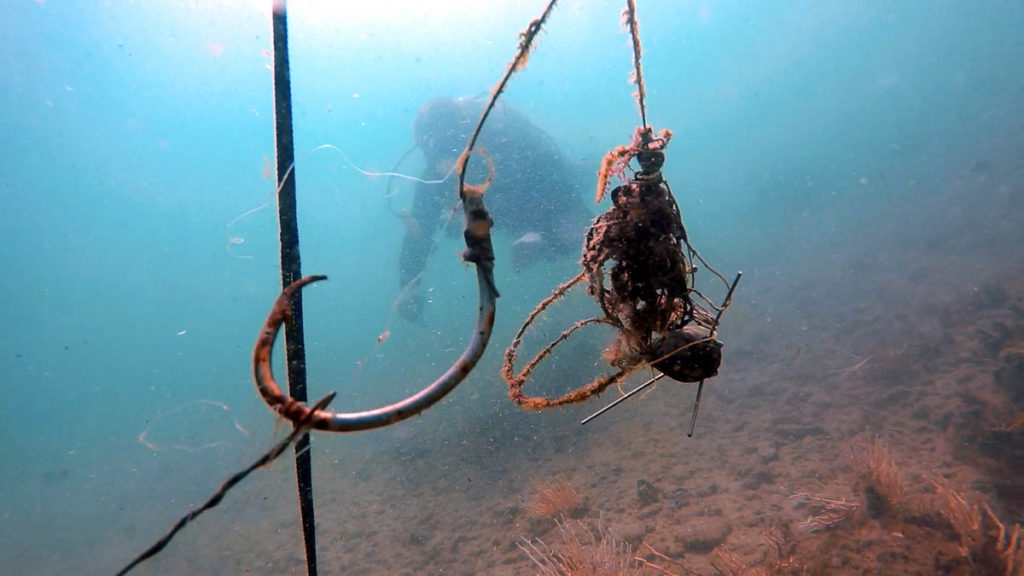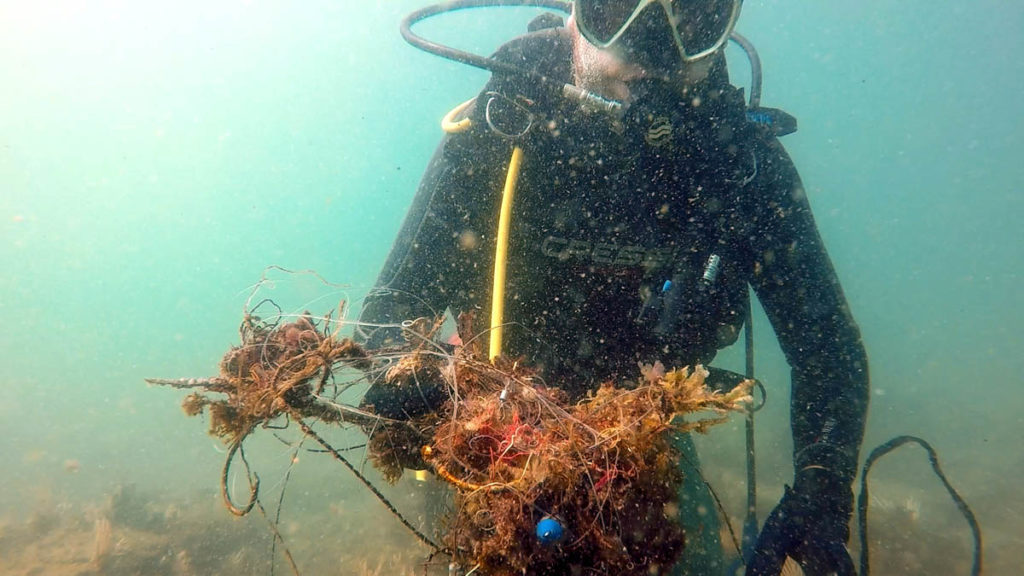Every diver understands the draw of the ocean, and most crave the next dive just moments after exiting the water. It’s a beautiful wonderland, with incredible fauna and flora inhabitants.
However, the oceans are in peril and there’s one offender at the forefront of these issues… plastic.
Recent studies, carried out by University of Exeter, have confirmed that microplastics were found in the digestive systems of every every single turtle, whale, dolphin and seal they tested.
Much of the plastic was believed to be pieces of fishing gear, fibres from clothing, broken down cigarette filters, and others.
It’s heartbreaking to think that we can’t keep some of our favourite dive companion creatures safe from plastic harm.
Considering that research shows metabolic changes in marine species consuming plastic, including disturbed fat metabolism, increased ethanol concentration in the liver, and increased levels of inosine/adenosine and lysine in muscles (none of which is very pleasant), do we really want to stand back and let this very troubling issue of plastic pollution in the oceans continue?
We, as divers and consumers, can’t just expect governments to take the responsibility for banning single-use plastics, as great as it would be if it happened.
Something every one of us needs to take charge of in our lives, is reducing our plastic footprint and to stop adding to the average of eight million metric tonnes of plastic that enters our oceans annually.
So how does this fit in with scuba diving?
Go Dive Mossel Bay have teamed up with the ocean conservation campaign, Keep Fin Alive, to create a new NAUI dive qualification called Clean Ocean Divers.
This qualification gives divers, from Open Water level, the knowledge and skills to carry out ‘deep cleans’… dive clean ups. They’ll carry out a deep clean as part of the course and help to keep our ocean healthy and marine life safe, by leaving it in a better state than when they arrived at the dive site.
It will also empower divers to take action, not just locally, but at any dive site they visit.
As divers, we have a responsibility to take care of the very thing that we desire. Everyone needs to learn to be an ocean hero, and protect the thing we love.
What else can you do?
At home
- Instead of relying on cling-film, use containers or wax wraps to store food in the fridge or freezer.
- Don’t cover a plate of leftover food with cling-film… use another plate (or wax wraps!).
- Use jars to store bulk foods in cupboards.
- Purchase a laundry ball that catches plastic fibres while washing clothing.
- Recycle.
While out-and-about
- Spend a few minutes picking up plastic you find whenever you visit the coastline.
- Always carry reusable shopping bags.
- Always carry reusable produce bags (for fruit and veg).
- Never, ever use single-use straws, cutlery, plates etc.
- Take jars with you and look for stores with bulk bins (for rice, nuts, spices etc).
- Take your own containers for salads, bakery items, deli items, meats from the butcher counter, etc.
- Take your own containers for takeaway foods.
- Always choose the biggest / bulk options and then split into containers at home for storage (perfect for rice, pasta, chips, cookies etc).
- Look for ethical branded clothing that won’t add to the billions of plastic clothing fibres already in the oceans, via the grey water from your washing machine.
- Buy second hand.
- Mend broken items and clothing instead of replacing them.
- Smokers: always dispose of your cigarette butt in an appropriate receptacle.
- Never litter.
- Always recycle.
- Ask restaurants, coffee shops, bars and retailers to stop offering single-use plastic like straws (you can let them know that they are welcome to download Keep Fin Alive’s free ‘The Last Straw’ poster: www.keepfinalive.com/downloads).
At work
- Insist on removing any single-use cups from water fountains to encourage employees to bring their own receptacle.
- Demand the removal or replacement of plastic straws, cutlery etc.
- Speak to supply chains to reduce plastic packaging in deliveries.
- Implement recycling faciclities.
Head to www.godive.co.zafor more information about the course.
Are you a NAUI dive school keen to offer up the Clean Ocean Divers course? Get in touch.










